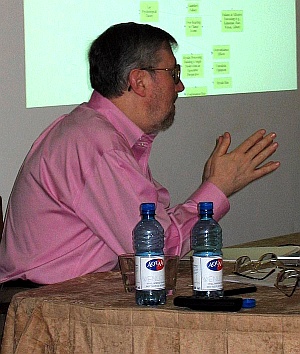

But the tests fall down when it comes to measuring those abilities crucial to making good judgements in real-life situations. That’s because they are unable to assess things such as a person’s ability to critically weigh up information, or whether an individual can override the intuitive cognitive biases that can lead us astray.
This is the kind of rational thinking we are compelled to do every day, whether deciding which foods to eat, where to invest money, or how to deal with a difficult client at work. We need to be good at rational thinking to navigate our way around an increasingly complex world. And yet, says Stanovich, IQ tests – still the predominant measure of people’s cognitive abilities – do not effectively tap into it. “IQ tests measure an important domain of cognitive functioning and they are moderately good at predicting academic and work success. But they are incomplete. They fall short of the full panoply of skills that would come under the rubric of ‘good thinking’.”
IQ isn’t everything

IQ tests and their proxies, which are designed to measure a factor known as general intelligence, are used by many businesses and colleges to help select the “best” candidates, and also play a role in schools and universities, in the form of SAT tests in the US and CATs in the UK. “IQ tests determine, to an important degree, the academic and professional careers of millions of people in the US,” Stanovich says in his book, What Intelligence Tests Miss (Yale University Press, 2008). He challenges the “lavish attention” society bestows on such tests, which he claims measure only a limited part of cognitive functioning. “IQ tests are overvalued, and I think most psychologists would agree with that,” says Jonathan Evans, a cognitive psychologist at the University of Plymouth, UK.
Indeed, IQ scores have long been criticised as poor indicators of an individual’s all-round intelligence, as well as for their inability to predict how good a person will be in a particular profession. The palaeontologist Stephen Jay Gould claimed in The Mismeasure of Man in 1981 that general intelligence was simply a mathematical artefact and that its use was unscientific and culturally and socially discriminatory. Howard Gardner at the Harvard Graduate School of Education has been arguing – controversially – for more than 25 years that cognitive capacity is best understood in terms of multiple intelligences, covering mathematical, verbal, visual-spatial, physiological, naturalistic, self-reflective, social and musical aptitudes.
